This is boy wonder Daniel Lozakovitj, 13, who signed to global management today.

This is boy wonder Daniel Lozakovitj, 13, who signed to global management today.

Apparently.
Elizabeth Braw reports for Newsweek that opera and ballet companies are running low beause ‘fashion colleges don’t teach students how to sew’.
So serious is the crisis that Opera Philadelphia’s new production of Giuseppe Verdi’s Don Carlo is under threat because Don Carlo requires a huge range of hand-stitched costumes strong enough to withstand the nightly rigours of the lead role. ‘We pay the best rates in the city but there just aren’t enough qualified stitchers available.’
Full story here.
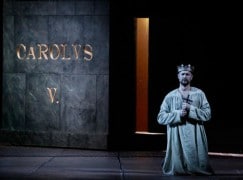
That’s the argument of a doctoral thesis by Anne-Marie Quigg, presented at the University of London. The subtitle is ‘When Creative becomes Coercive’.
You can read the full thesis here (we’re saving it for the weekend).
This is a summary (below). You know it happens. You’ve seen the movie Whiplash. Be aware.
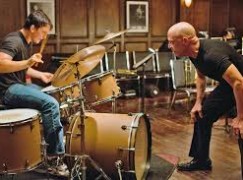
The original research carried out in a range of arts organisations in the UK included employees at every level within both commercial and subsidised performing arts organisations in England, Scotland and Northern Ireland. It demonstrates that bullying in UK performing arts organisations is common and increasing in frequency: it is damaging, oppressive and unacceptable. Clear evidence is presented of the failure of management satisfactorily to address bullying: some arts workers tolerate intimidating behaviour by powercut managers because they believe in, and are committed to, the Arts. Among managers, the notion of the arts as vocaffon persists. The widespread perception is that arts organisations work outside the rules and limitations of the ordinary milieu, choosing to work in theatres and arts centres rather than in offices, factories and shops, and that the arts are different and exempt from normal rules and regulations. The research found that many aspects of working in the performing arts are not peculiar to the profession, they occur in other employment sectors and are more likely to be characteristic of the times in which we live, than specific to the sector in which we work. In assessing workplace stressors, it is the response of the organisation, alongside the individual response, that determines negative stress levels. The apportionment of responsibility for successful resolution of negative behaviours within arts organisations is examined. The need to develop suitable policies for dealing with bullying is highlighted. The nature of the behaviour, its effects on individuals and organisations and the role of the perpetrator are outlined. The experience of, and steps taken by, other countries are examined, notably Australia, Canada, France, Sweden and the United States where the profile of bullying behaviour continues to be featured regularly in the press and media, although not yet in the performing arts.
h/t: Ian Pace
Lovely story from Graham Spircer at Gramilano.
James Hobley, 15, from Redcar, is autistic. So is his twin brother. And his elder brother. They have been schooled at home by their mother, Sheila, after having to endure bullying at a state school.
James conceived a passion for dance. He went on Britain’s Got Talent. Now he has won a place at ballet school.
Billy Elliott all over again.
Read the full story here.
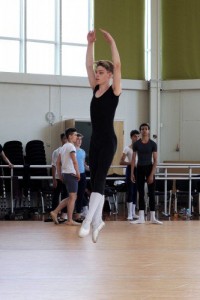
Karolina Nadolska, whom many saw as Poland’s front-player in this autumn’s Chopin Competition, has been forced to withdraw.
She tells Slipped Disc: ‘ I have a problem with right hand… I was supposed to play on the 17th but couldn’t move my fingers. The organizers proposed me to try today but my hand is still in bad condition. Well… It is a bit better but still not good enough to play 3 Etudes.. That is why I had to resign…’
Karolina, 30, came second in the 2011 All-Poland Fryderyk Chopin Piano Competition [redacted] in Warsaw and was expected to fly the Polish flag high again this year. We wish her a swift recovery.
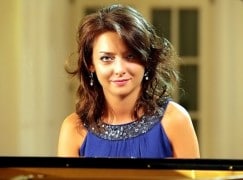
Kathryn Enticott, formerly the go-to manager at disintegrating IMG Artists, has made her first signing as a boutique agent.

The artist is called Daniel Lozakovitj, he’s Swedish born and he studies with Professor Josef Rissin at Karlsruhe.
Going by the publicity pic he hasn’t started shaving yet, but he seems to be quite busy on the touring circuit.
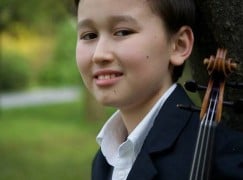
Want to see him play? Click here.
If the UK election campaign has been dull so far, it’s for want of musical commentary.
No more. Up pop’s our pal Melinda Hughes with her whip and her her both-ways swing…. Just gone live.

I am hugely taken with Stephen Hough’s new set of Grieg’s Lyric Pieces on Hyperion. It’s my Album of the Week on sininimusic.com.
But I’m still having to adjust my ears to the piano he chose to play. Read my discomfort here.

Pietari Inkinen, the young Finn who is stepping down as music director of the New Zealand SO, is to be chief conductor of the Japan Philharmonic. He has been principal guest with them since 2009.
Inkinen, 34, is also chief of the Prague Symphony.

Here’s an extract from this morning’s press conference.
It will be ten years next Wednesday since the channel went online and for much of that time – since December 10, 2005, to be precise – Stephen Malinowski has been giving viewers access to classical pieces through the medium of musical animation.
Inventor of the Music Animation Machine and a lavishly gifted musician, Malinowski has clocked up more than 100 million views. Each video, elegantly performed, comes with footnotes that tell viewers how they can perform the work at home.
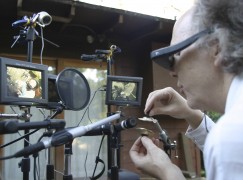
These are the original December 10, 2005 set. Well worth revisiting:
And here’s how the animation is done, live in concert (with our pals Etienne Abelin and Dot Yeung).
Moses und Aron opened this weekend at the Komische Oper, but that’s just the prelude.
In September,the Berlin Festival will perform 19 works by Arnold Schoenberg, who lived in Berlin from 1902 to 1903, and again from 1926 to 1933 as masterclass teacher at the Prussian Akademie der Künste.
Among the festival works will be Die Jakobsleiter (Jacob’s Ladder), never finished and seldom performed. Details below.
For starters, see how many students you can identify in this masterclass picture.
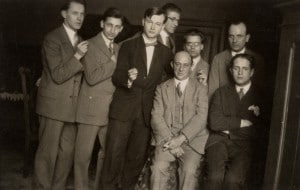
press release:

Musikfest Berlin 2015 dedicates one of its festival focal points to composer Arnold SchönbergTogether with the Deutsches Symphonie-Orchester Berlin, the Berliner Festspiele present the rarely performed oratorio “Die Jakobsleiter” by Arnold Schönberg in September as part of the Musikfest Berlin 2015. Schönberg the composer is among the thematic focal points of this year’s festival. |
Schoenberg’s class: Zmigrod Joseph, Weiss Adolph, Rufer Josef, Goehr Walter, Schmid Erich, Schönberg Arnold, Gronostay Walter, Gerhard Roberto, Berlin, Mai 1926
Find The One is a 3D animated TV promotion for Triumph female underwear.
It’s winning all sorts of attention on European launch this week for its sophisticated, post-Disney screen tech.
But the most extraordinary part of the process is that the music was composed and recorded before a fram was shot.
Prima la musica… here’s how.
